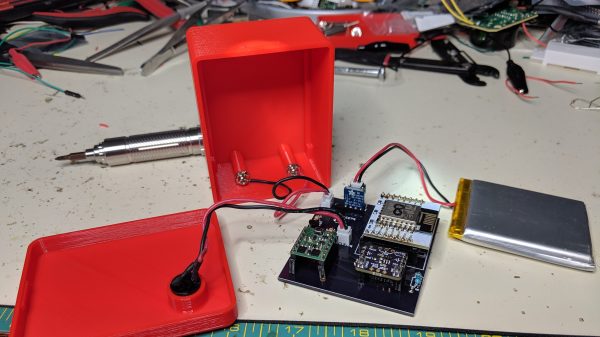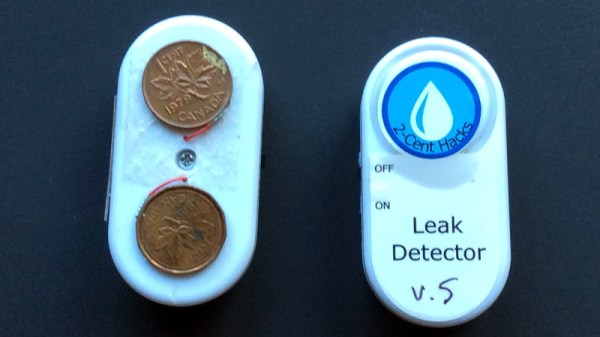Water damage can quickly make even the nicest buildings unliveable. [Andres Leon] suffered a small flood from an air conditioning unit, and wanted to avoid such issues in future. Thus, he built a wireless monitor to solve the problem.
The device is based on the ESP8266, allowing it to wirelessly communicate with Home Assistant. Thus, if it detects water via its rust-proof probes, it can notify Home Assistant via an MQTT message. From there, Home Assistant can advise the home owner remotely via phone and email. Plus, just for completeness, there’s a loud buzzer in the unit that goes off when water is detected, too. Thanks to a 2500 mAh lithium-polymer battery on board, the device can run for up to 5 months between recharges.
Integrating warning systems into one’s smart home system can be particularly useful when one is away for long periods. Things like water leaks tend to do damage over time when we’re not paying attention, so any IoT device that can assist in this regard is helpful. If you want to investigate the cause of a difficult leak, though, this other project may help. Video after the break.
Continue reading “Wireless Water Detector Hooks Up To Home Assistant”












